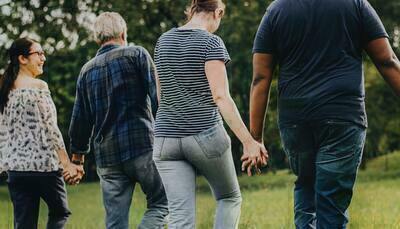Accessibility links You are here: Mondays are never the highlight of anyone’s week, but for BBC2 radio presenter Bob Harris this Monday, in February
2007, was the worst he’d ever had. He should have been settling down for a family meal with Trudie, his wife and business partner of 16 years, and their three children, Myles, 16, Dylan, 14, and Flo, 11, at their home in Oxfordshire. Instead, the radio legend received the news he’d been dreading &ndash he was suffering from advanced prostate cancer. “I was numb,” he says. “I couldn’t believe it was happening to me.” “It was only two weeks earlier, on a Friday night, that I’d mentioned to Trudie that I’d had some specks of blood in my urine. I wasn’t overly concerned, but Trudie encouraged me to see my GP, Dr Simons. He gave me a general medical and did a blood test to get a PSA (prostate specific antigen) reading to gauge the level of it in my blood. I was told a high PSA reading can be a sign of cancer, but he didn’t seem worried and he said he’d contact me within the fortnight with the results.” But four days later the surgery asked Bob to come back in. ” ‘A PSA reading over six isn’t great, Bob. Yours is 32,’ “said Dr Simons. “He couldn’t be sure that it was cancer and he didn’t want to worry me unnecessarily. He explained that a high PSA reading can be a sign of early prostate cancer, but it can also be caused by something less serious such as an infection, a big exercise stint, or ejaculation in the days before taking the test.” Bob was referred to the Manor Hospital in Oxford to have a prostate biopsy in order to check if cancer cells were present. “The rectal biopsy using a hollow needle was over in less than five minutes, thank God, as it wasn’t enjoyable. Afterwards, I was walking gingerly, a bit like John Wayne.” “Later that night, once everyone was in bed, I went to my studio at the bottom of the garden, and that’s when the enormity of the prognosis hit me. There was a good chance I was going to die and there was little I could do about it. I felt so helpless. I couldn’t stop crying for the next hour, wondering what was going to happen to Trudie, the kids, and my programmes. They were my world, and I had so much I still wanted to do.”
For the next two weeks, while he waited for the MRI results, Bob tried to behave as if nothing was wrong and buried himself in his work. “The uncertainty was unbearable,” he says. “I kept hoping there was a mistake.”
39I39m Lucky It Didn39t Get Me39 2009: Accessibility Links
39I39m lucky it didn39t get me39

Event Location:
